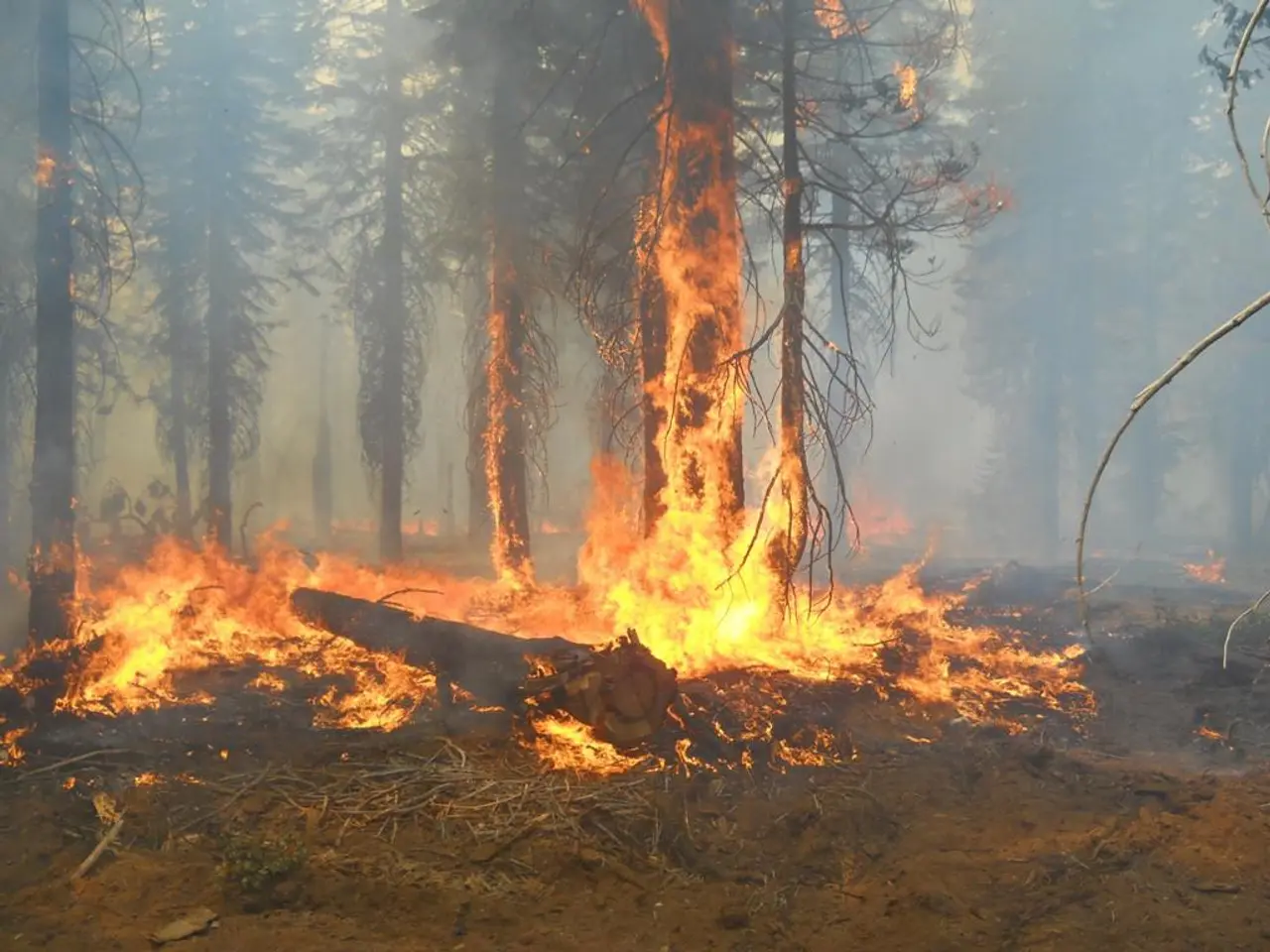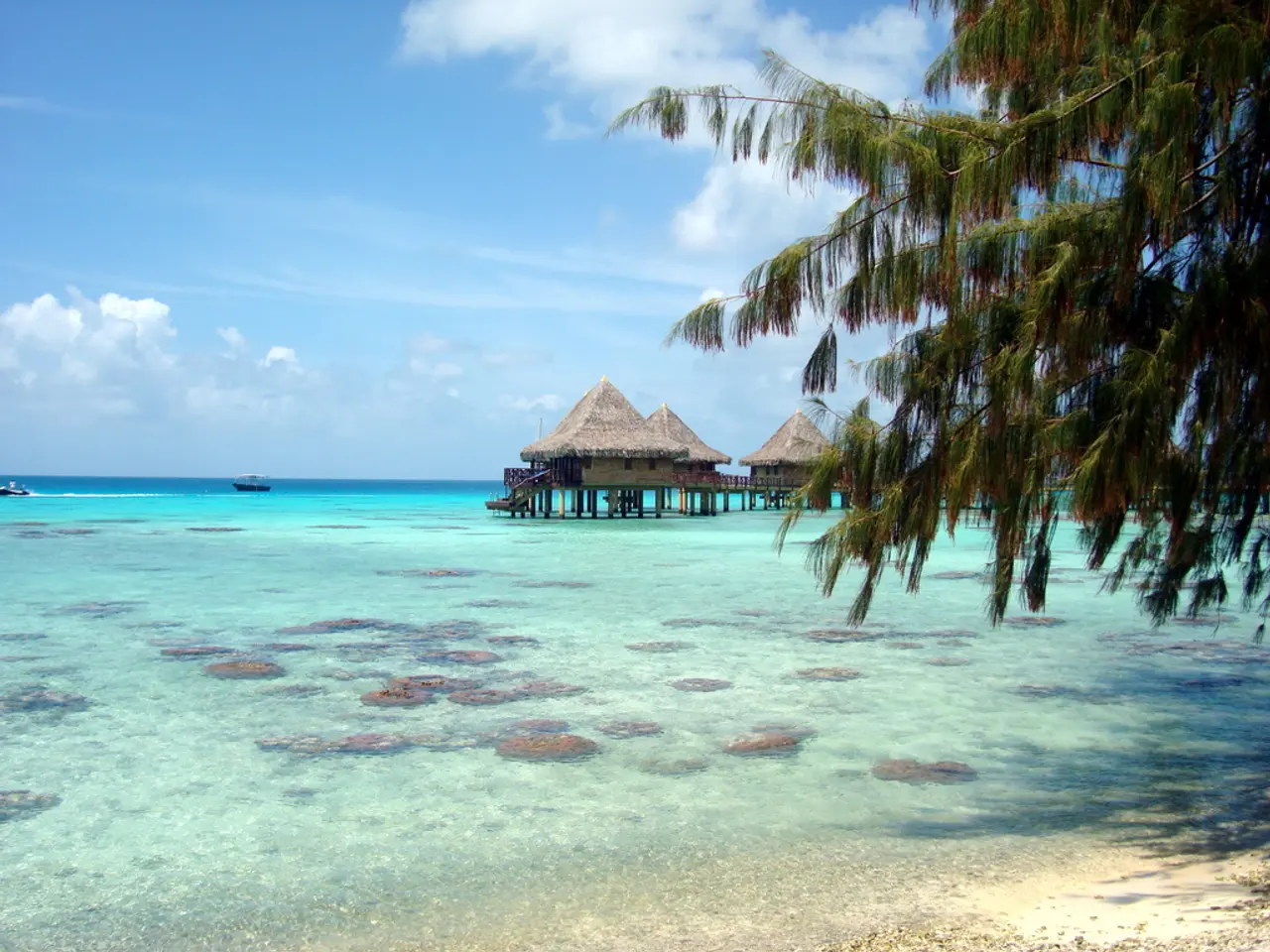Firefighters successfully subdue substantial blazes in Portugal and Spain.
The Iberian Peninsula, home to Portugal and Spain, is currently grappling with an increase in severe wildfires. These blazes are primarily driven by a combination of human activity, high temperatures, dry weather conditions, and inaccessible terrain.
Causes:
The recent wildfires can be attributed to several factors. Human causes such as negligence, accidents, or intentional actions have sparked many fires, including the large fire in the Las Hurdes region in Spain. Climate factors, including unusually high temperatures and prolonged dry spells, increase the wildfire risk across both countries. Geographic challenges, such as mountainous and inaccessible terrain, impede firefighting efforts and allow fires to spread rapidly.
Impact:
The fires have wreaked havoc, devastating tens of thousands of hectares of forest and wildland. Spain alone has seen over 42,000 hectares burned in 14 major fires so far in 2025. Several villages have been evacuated to protect residents from advancing fires, with hundreds displaced temporarily. Firefighting efforts are extensive, involving thousands of firefighters, numerous vehicles, and cross-border cooperation.
Prevention and Mitigation Measures:
Emergency services are coordinating their efforts across regions and between Spain and Portugal to mobilize specialized resources quickly. Advanced technology and equipment are being used in firefighting to manage fires in challenging terrains and weather conditions. Early warning systems, including heat and fire risk alerts, are being issued by meteorology agencies to inform and prepare communities. Public awareness campaigns are being conducted to reduce human-caused fire starts, and enforcement against negligent or intentional fire ignition is being enforced. Ecological forest management is being implemented to reduce fire fuel loads, including controlled burns and clearing dead vegetation.
The destruction caused by wildfires in Portugal this year, with more than 29,000 hectares having been destroyed, is a concern for authorities and experts alike. The number of hectares destroyed this year is significantly more than in previous years. The fire in Peneda-Gerês National Park, near the Spanish border, was stabilized on Saturday, while a wildfire in the Arouca region in northern Portugal was largely contained by Friday morning.
Portugal, a popular tourist destination, experiences devastating fires annually. The wildfires in Portugal are a global example of the increasing frequency and intensity of extreme weather events due to climate change. The increase in spending on fire prevention and fighting in Portugal is a response to the devastating fires in previous years.
In conclusion, the combination of climate-driven extreme heat and dryness, together with human factors and complex terrain, underlies the current wildfire severity in the Iberian Peninsula. Emergency services remain stretched but coordinated to address the continuing fire threats.
Vocational training programs focusing on environmental science and climate-change could be integrated into community policy to raise awareness and equip local residents with the skills needed to mitigate wildfire risks. This training may include techniques for creating fuel breaks, managing forests sustainably, and efficiently operating firefighting equipment to effectively combat wildfires in challenging terrains and weather conditions.
The implementation of such vocational training initiatives could serve as a proactive measure in reducing the impact of wildfires on the environment and communities of the Iberian Peninsula, as we continue to contend with climate change and extreme weather events.








